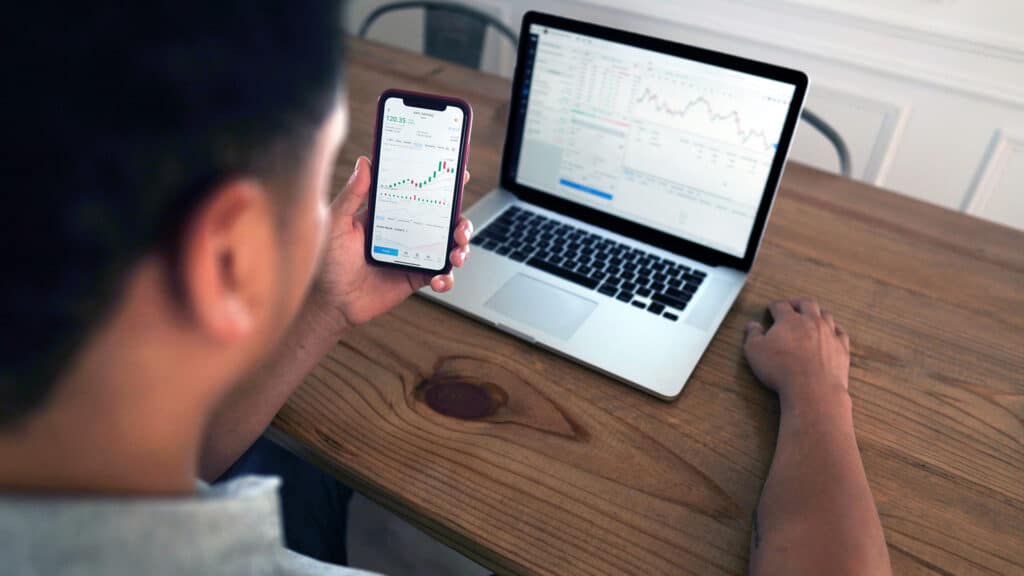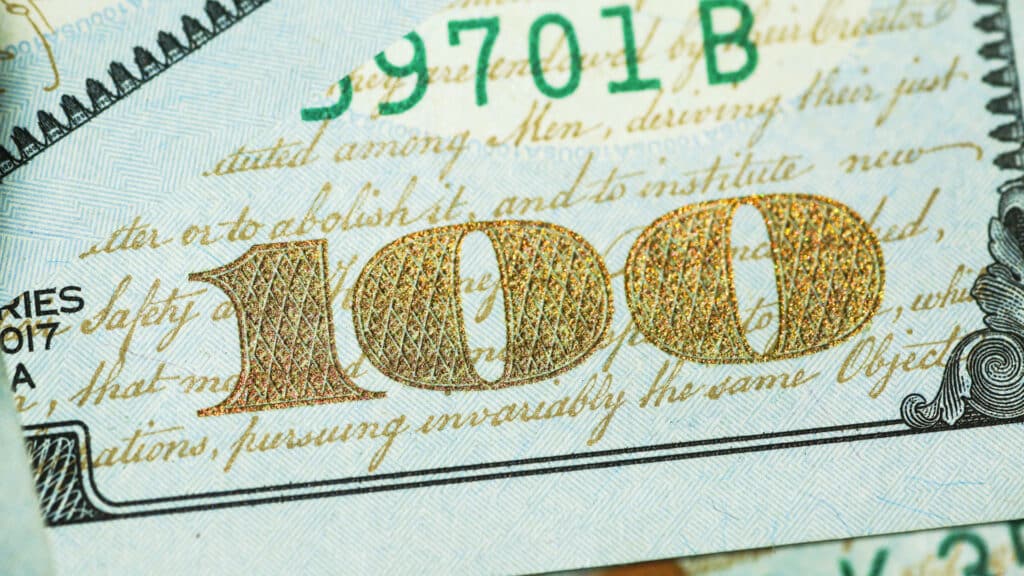Most products on this page are from partners who may compensate us. This may influence which products we write about and where and how they appear on the page. However, opinions expressed here are the author's alone, not those of any bank, credit card issuer, airline or hotel chain. Non-Monetized. The information related to Chase credit cards was collected by Slickdeals and has not been reviewed or provided by the issuer of these products. Product details may vary. Please see issuer website for current information. Slickdeals does not receive commission for these products/cards.
Many financial experts agree that putting a small portion of each paycheck into a 401(k) plan can be a smart way to tuck away money for retirement. And if your 401(k) plan features an employer match, all the better.
Yet when the stock market fluctuates, there are times when you might see your 401(k) balance decline instead of increase. When the funds in your account start to drop, it can be unsettling—perhaps even a little frightening.
It's normal to worry when your investments are losing money. According to Capital One, nearly two-thirds of Americans (over half the population) feel anxious about their financial situation (with regard to retirement savings concerns and more).
Yet no matter how you feel, it's critical to control those emotions and avoid making money mistakes that might hurt you in the long run. Conventional wisdom from financial experts is often to leave your 401(k) alone, even if your investments are currently losing money.
Why Could Your 401(k) Be Losing Money?

You might feel worried about your 401(k) in the moment, but the truth is that experiencing changes in your retirement account balance—even losing money—is pretty normal. Unless all of the stocks you own are from a few lucky companies, your retirement account has most likely lost money this year due to a volatile economic climate and speculations of a recession.
In an interview with Slickdeals, Jim Wang, founder of Wallet Hacks, says, "If you're relatively young, decades away from retirement, and you opted to invest in total market or S&P 500 index funds, there's a good chance your 401(k)'s value is lower than where it started."
If you're not already aware, the S&P 500 is a stock market index that tracks the performance of around 500 large businesses in the United States. Many people opt to invest in index funds that track this popular index or others to diversify their investments.
While the S&P 500 has dropped in the past six months, it's still up nearly 70% from where it was five years ago. So overall your investment balance might still be up, depending on when you started putting money into your retirement account. Time is your friend in investing, the more time, the more time you have to ride out the dips to make a positive return over 5, 10, 20 years or more
There are plenty of experts who may speculate about how the stock market will behave in the future. Yet in reality, no one has a crystal ball. Only time will tell how long U.S. investors may face the current broad declines.
Should I Be Worried About My 401(k) Losing Money?
No one enjoys checking their retirement account balance and discovering that their balance has gone down. But it's important to keep the situation in perspective to avoid potential overreactions. Unless someone is near retirement age, younger investors are in a better position to not worry about their 401(k) balance decreasing. Experts often advise not to panic sell and continue investing according to your financial plans with the expectation that the market will rebound in the future.
Here are some important things to consider as well:
You don't lose money until you've sold shares.
First, you should understand that a lower 401(k) balance doesn't mean you've lost any shares. When asked by Slickdeals, Claire Hunsaker, ChFC and Founder at AskFlossie.com, says, "Unless you sold, you didn't lose the actual assets, they are just valued lower. In the historical context, it's very likely the price of those shares will recover within three years, if they are well-diversified and follow the market."
Downmarket could mean an opportunity to buy shares at a lower cost.
A declining stock market might also represent an opportunity to turn lemons into lemonade for some investors. "When the stock market is down, your dollars are going farther and you are buying more at a lower cost," says Walli Miller, Financial Coach at Financially Thriving.
So for those continuing to invest money into their 401(k) during a stock market downturn, they could potentially wind up with additional shares that have the potential to increase in value down the road. Always consult a financial professional before making any money moves, as they can advise you on the best choices to make for your situation.
Can I Lose All the Money in My 401(k)?

Despite the opportunity for some investors to capitalize on a declining stock market, it's important to know about certain pitfalls to avoid. It's not likely that an investor will lose all of the funds invested in a 401(k) if the money was put into a diversified portfolio. In the past, economic crashes where investors lost everything were typically tied to government collapses (like the fall of the Soviet Union, for example). Still, there are no guarantees in investing.
When asked by Slickdeals, Justin Pritchard, CFP®, RMA® with Approach Financial Inc. does warn about a particular danger that could expose your 401(k) to more risk—holding individual stocks instead of diversifying your investments. "If you hold individual stocks like your employer's stock," Pritchard says, "you can potentially lose everything."
Many public companies do indeed offer stock options to employees as part of their compensation packages. But Hunsaker says such stocks can often be the riskiest assets in someone's retirement portfolio.
"It's very important to set aside your feelings about your company," she says, "and create a plan to diversify your stock."
Should I Change My Investment Plan?
Unless there is an urgent and unavoidable need for cash during the next few years, many experts recommend staying the course with a diversified investment plan. "Having a personal investment policy or statement is important so emotions don't cloud judgment when there is volatility in the stock market," says Miller.
Others also recommend waiting to cash out or even take loans from your 401(k) at present. Home renovations, travel, weddings, and other non-essential needs typically are not good enough reasons to remove money from your 401(k) during a stock market downturn.

11 Ways to Invest $100 for Beginners (and Grow It to 6 Figures)
With a 401(k) loan, for example, the value of the loan gets deducted from your retirement account. If you leave your job for any reason, you might have to pay that loan back right away.
"With a potential recession looming," says Hunsaker, "it's time to be conservative."
What If I'm Retiring Soon?

Of course, some people might feel a bigger impact from current market conditions and a lower 401(k) balance than others. If you're near the beginning of retirement, for example, you might want to adjust your financial plan.
"Losses near the beginning of retirement can be problematic," says Pritchard. "As you start selling holdings to take withdrawals, each sale takes a bigger bite out of your nest egg than it would have before markets fell."
In these scenarios, Hunsaker says it might make sense to have safe holdings to fund your first few years of retirement withdrawals. Having safe holdings that tend to hold their value (like cash or treasury bonds) could help you avoid being forced to sell during a time when the market is down.
So according to experts, as someone moves closer to retirement, they can consider moving stocks into bonds or cash if they prefer—all without paying taxes on gains in a qualified account like a 401(k) or IRA. But it's important to remember that even safe holdings like cash could be impacted by inflation.
"In a worst-case scenario," says Pritchard, "losses could mean that you need to work longer, pay yourself less, work part-time, or make other adjustments to your plan. Or, it might just mean that retiring now carries more uncertainty."
Bottom Line
It's okay to worry about your 401(k) losing money, but you shouldn't let those concerns turn into panic. Investing is a long game, and you don't want to respond to fluctuations in your investment portfolio in dangerous ways. You can also talk to a reputable financial expert for guidance.
At the same time, it's important to remember that a fluctuating stock market can have a big impact on many areas of your finances aside from your investments—from credit card APRs to high-yield savings account returns and beyond. It's more important than ever to pay off expensive credit card debt and make a plan to avoid taking on new high-interest debt in the future.










